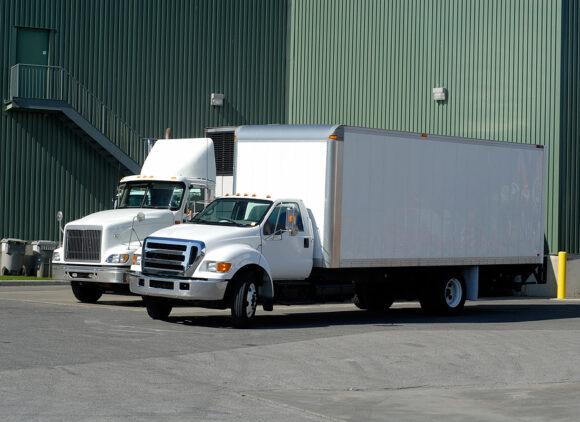Trucking insurers issuing motor carrier policies which contain MCS-90 Endorsements may be overlooking significant subrogation and recovery opportunities. MCS-90 subrogation is a fascinating and under-utilized means of recovery that can significantly increase an insurance carrier’s bottom line. Understanding the history behind and developing a working knowledge of MCS-90 Endorsements is essential for any adjuster or subrogation professional working in the transportation insurance field. This article will outline the importance of embracing MCS-90 reimbursement in your practice and the essential nature of giving these files attention immediately upon making any payment under an MCS-90 Endorsement.
It is known as the “Endorsement for Motor Carrier Policies of Insurance for Public Liability under Sections 29 and 30 of the Motor Carrier Act of 1980.” In 1980, Congress passed the Motor Carrier Act of 1980 to reduce regulations and increase competition in the transportation industry. Despite the goal of reducing burdensome red tape, the Motor Carrier Act also placed additional safety requirements on carriers of property. The Interstate Commerce Commission (ICC) instituted the first regulations regarding insurance and financial responsibility, but after the ICC was abolished in 1995, most of the responsibility and power related to motor carrier safety and financial responsibility landed on the shoulders of the Department of Transportation (DOT) and its sister agency, the Federal Motor Carrier Safety Administration (FMCSA).
Today, the minimum insurance requirements for private and “for hire” motor carriers have become part of the 157,974 pages which comprise the Code of Federal Regulations. Every motor carrier operating a commercial motor vehicle in interstate commerce must have certain minimum levels of financial responsibility established by the FMCSA. This includes $750,000 to $5,000,000 in public liability insurance for freight (depending on the commodities being transported) and $5,000,000 for those carrying passengers ($1,500,000 if fewer than 15 passengers).
The use of leased or non-owned equipment is common in trucking operations. When a licensed motor carrier leases a truck and hires a driver, the lessee must by law assume control and responsibility of the leased equipment for the trip. When a negligent operator, owner or lessee appears to lack insurance coverage, however, an understanding of state and federal financial responsibility requirements is vital because these requirements may provide payment to injured parties, irrespective of insurance coverage. This is where subrogation recovery arises.
The Motor Carrier Act of 1980, 49 U.S.C. § 13906, mandates that all interstate carriers have either a policy, including an MCS-90 Endorsement, the requisite capacity for self-insurance, or purchase a qualifying surety bond. Policies including MCS-90 Endorsements are utilized by the vast majority of the trucking industry to satisfy the requirements of the Motor Carrier Act. The MCS-90 is essentially an endorsement that makes the insurer a surety to the public. It shifts the risk of loss for accidents occurring in the course of interstate commerce away from the public by guaranteeing that an injured party will be compensated even if the insurance carrier has a valid defense based on a condition in the policy. It states that the issuing insurance company will pay a third party for any final judgment against their insured when a non-covered incident is caused by the negligence of the insured and it causes injury to a third party. An example would be if a carrier fails to list a truck on its policy and that truck is later involved in an accident with a third party. This accident would not be covered by the policy. However, the insurance company would be obligated to pay for the final judgment against its insured under the MCS-90 Endorsement. On a side note, the insurance company, although obligated to pay for a final judgment, is not responsible for mounting a defense for their insured. However, the insurance company will often find it in their best interest to defend their insured and settle a MCS-90 claim prior to judgment. The most appropriate handling of these claims will be entirely fact dependent and differ in almost all situations.
When the insurance company pays the judgment creditor (injured third party) under the MCS-90 Endorsement, they become fully subrogated to the third party’s rights. This means that the MCS-90 Endorsement and subsequent payment of these claims creates the right of the insurance company to seek reimbursement from its own insured. Interestingly, these claims can only be brought against the insured and not against another party that may have contributed to these accidents. This is because the insurance company is stepping into the shoes of the judgment creditor and not their insured. Accordingly, these claims can get tricky since the only way to seek a recovery is often by obtaining a reimbursement from the insured.
These claims become very difficult when the insured is judgment proof and not capable of reimbursing their insurance company. Due to the nature of the trucking industry, this financial instability is very common. In fact, the fluidity of companies and tentative financial nature is the reason why the MCS-90 Endorsement was created in the first place.
The difficulties become even more profound when there is an under-funded or out-of-business carrier. Further, reimbursement potential is not always negated solely by the legitimate economic status of small company, but is often associated with fraud and deceit. Small fleets are known to change names and reincorporate for the purpose of avoiding obligations such as MCS-90 reimbursement. The carrier will spend a few hundred dollars to form a new LLC with the purpose of avoiding the liabilities associated with the previous company. The operator will claim it is a new company and cannot be sued for the tort of the old company. But, not so fast.
Modern tort law has developed theories of liability which allow a debtor to pierce the corporate veil of the new corporation and make it liable for the tort of the predecessor corporation. This is allowed, depending on the state, when, (1) the successor corporation is a “mere continuation” of the predecessor corporation, including situations where there is simply an asset purchase; (2) the successor corporation is made up of the same key people, the name, location, facilities or products are the same; or (3) the new corporation has assumed the liabilities and obligation of the predecessor corporation.
Every state has different rules on when or how the corporate fiction can be disregarded. Litigating these issues can be time intensive and prohibitively expensive on all but the strongest and highest value of claims. In most situations, out-of-business means out of luck. Knowing the good from the bad can literally mean the difference between recovering a million dollars and recovering nothing at all.
Due to the mercurial nature of the trucking industry and the ability for small fleets to simply change their corporate structure, it is very important to engage counsel and act quickly to protect any claims for MCS-90 reimbursement. MCS-90 reimbursement claims can become utterly worthless in a matter of days. An insurance company should have plans in place for reimbursement and subrogation counsel should often be consulted prior to even making the initial payment. The adjusters should review the financial capacity of their insured and adjust this plan accordingly. MCS-90 claims can make a huge difference in your company’s bottom line. However, to capitalize on these claims, the adjuster will need to act quickly and engage counsel promptly.
 Ashton T. Kirsch is an insurance litigation associate with the law firm of Matthiesen, Wickert & Lehrer, S.C. Ashton’s practice areas include insurance litigation, subrogation, workers’ compensation, health insurance and ERISA, and transportation and cargo. Ashton can be reached at akirsch@mwl-law.com.
Ashton T. Kirsch is an insurance litigation associate with the law firm of Matthiesen, Wickert & Lehrer, S.C. Ashton’s practice areas include insurance litigation, subrogation, workers’ compensation, health insurance and ERISA, and transportation and cargo. Ashton can be reached at akirsch@mwl-law.com.
Was this article valuable?
Here are more articles you may enjoy.


 UBS Top Executives to Appear at Senate Hearing on Credit Suisse Nazi Accounts
UBS Top Executives to Appear at Senate Hearing on Credit Suisse Nazi Accounts  Canceled FEMA Review Council Vote Leaves Flood Insurance Reforms in Limbo
Canceled FEMA Review Council Vote Leaves Flood Insurance Reforms in Limbo  These Five Technologies Increase The Risk of Cyber Claims
These Five Technologies Increase The Risk of Cyber Claims  Berkshire Utility Presses Wildfire Appeal With Billions at Stake
Berkshire Utility Presses Wildfire Appeal With Billions at Stake 